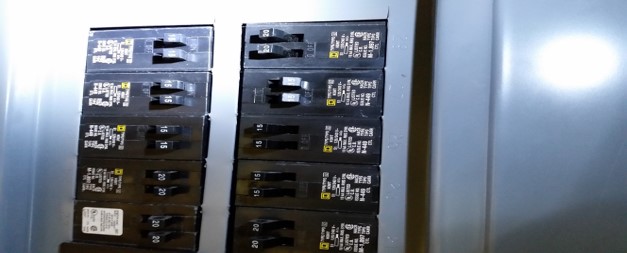
Breakers are designed to trip or switch off when there is an overload, short circuit, or ground fault in an electrical circuit.
Some common reasons that can cause breakers to trip include:
- Overloading: When too much current flows through a circuit, it can cause the breaker to trip. This can happen when too many devices are connected to a single circuit or when an appliance draws too much power.
- Short circuit: A short circuit occurs when a hot wire touches a neutral wire or a ground wire. This can cause a sudden surge of electricity, leading the breaker to trip.
- Ground fault: A ground fault occurs when a hot wire comes into contact with a ground wire or a metal wall box. This can cause a breaker to trip to protect the circuit from electrical shock.
- Age and wear: Breakers can become worn or damaged over time, causing them to trip more frequently. This is especially true if the breaker has been subjected to a lot of stress or if it is not rated for the amount of current being used in the circuit.
- Environmental factors: Extreme temperature changes or high levels of moisture can cause breakers to trip. This is because temperature and humidity can affect the electrical resistance of the wires in a circuit, leading to fluctuations in current flow.
- Faulty appliances: Faulty appliances can cause breakers to trip. This can happen if the appliance has a damaged power cord, is not functioning properly, or is drawing too much power.
Understanding why a breaker is tripping is first step in resolving a potentially dangerous situation and a licensed electrician is the best call to make